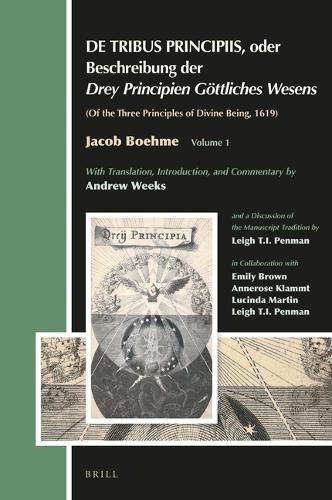Readings Newsletter
Become a Readings Member to make your shopping experience even easier.
Sign in or sign up for free!
You’re not far away from qualifying for FREE standard shipping within Australia
You’ve qualified for FREE standard shipping within Australia
The cart is loading…






Jacob Boehme’s Of the Three Principles of Divine Being, 1619, is vital for understanding his work as a whole, its relationship to its epoch, and its role in intellectual history. Reproduced here using the methods of critical edition, the original of the work and its adjacent translation, together with an extensive introduction and commentary, provide unprecedented access to this essential work of early modern thought and cast a fresh light on the revolutionary theological, philosophical, and scientific developments coinciding with the start of the Thirty Years’ War.
The 1730 edition is annotated with reference to the manuscript sources to clarify ambiguities so that the translation can interpret the text without refracting its meaning. This makes it possible to interpret Boehme’s complex theories of the origin of the divine being and of nature, the human creature, and the female aspect of divinity.
$9.00 standard shipping within Australia
FREE standard shipping within Australia for orders over $100.00
Express & International shipping calculated at checkout
Jacob Boehme’s Of the Three Principles of Divine Being, 1619, is vital for understanding his work as a whole, its relationship to its epoch, and its role in intellectual history. Reproduced here using the methods of critical edition, the original of the work and its adjacent translation, together with an extensive introduction and commentary, provide unprecedented access to this essential work of early modern thought and cast a fresh light on the revolutionary theological, philosophical, and scientific developments coinciding with the start of the Thirty Years’ War.
The 1730 edition is annotated with reference to the manuscript sources to clarify ambiguities so that the translation can interpret the text without refracting its meaning. This makes it possible to interpret Boehme’s complex theories of the origin of the divine being and of nature, the human creature, and the female aspect of divinity.